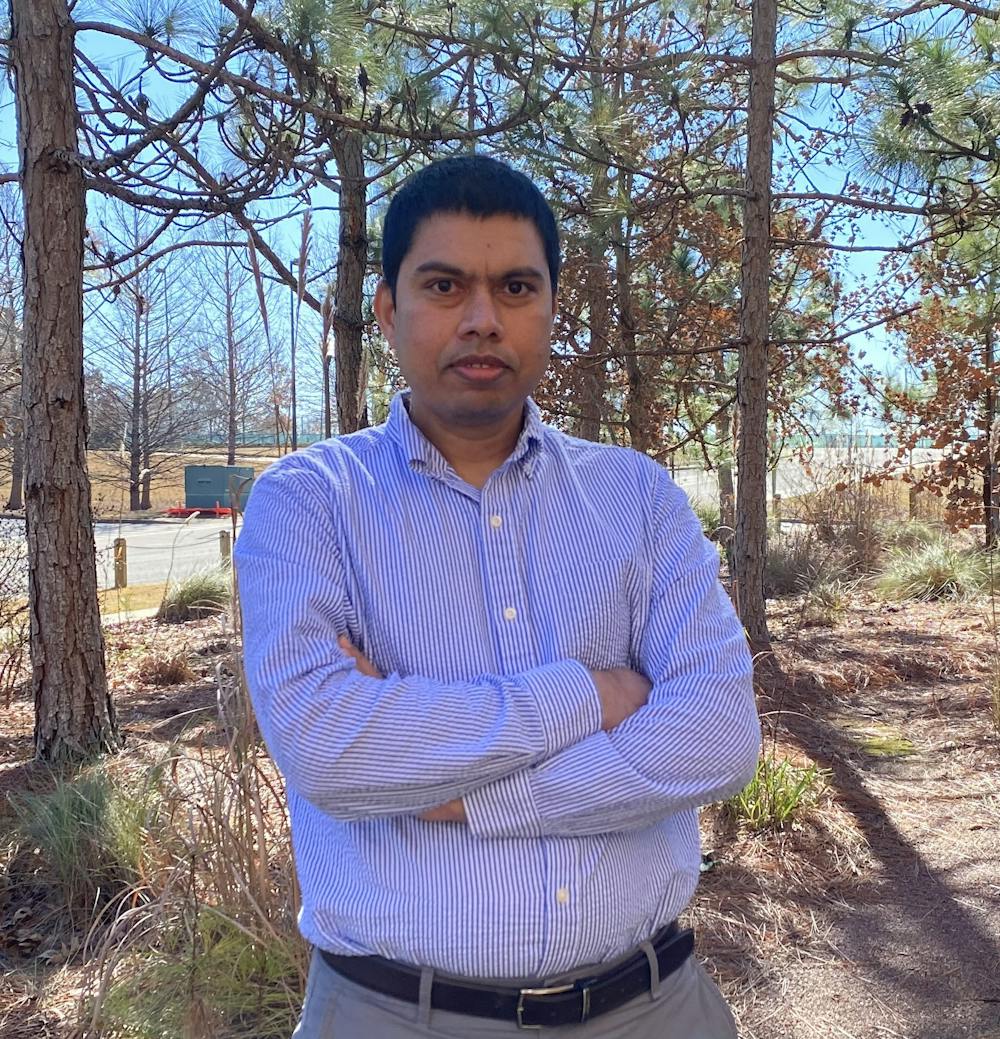Sanjiv Kumar was recently selected as a member of the Predictability, Predictions and Applications Interface, or PPAI.
This panel is a branch of the U.S. Climate Variability and Predictability Program, or CLIVAR. Kumar will be serving a four-year term on the panel because of his work in climatology.
Kumar is an assistant professor at Auburn’s College of Forestry and Wildlife Sciences. He has been at Auburn since May 2017.
PPAI is made up of 12 members, each of which are experts in a subfield of climatology. Kumar was selected to provide a land focus on climate forecasts.
“It was great,” Kumar said when asked how he felt about being selected for the PPAI. “This was wonderful for me and the work that I am doing is being recognized.”
Kumar said while most of his fellow panelists are bringing water and ocean focuses to the panel, his perspective will provide climate predictions from the land side of climatology.
“Most of the current panelists from either the ocean side or water application side, and I’m bringing a perspective from the land and things like vegetation,” Kumar said. “This can help us to improve predictability going forward.”
The goal of PPAI is to use climate forecasts more efficiently and accurately. Through Kumar’s work, he is helping the U.S. make more accurate predictions about the climate in the future.
“We hold monthly webinars where we invite an expert to see where our current research stands,” Kumar said. “We come up with a recommendation on what should be the next step in our research.”
Aside from his monthly webinars, Kumar is also occasionally called to Washington D.C. for in-person panel meetings.
Kumar said the PPAI is largely centered around eliminating uncertainty in the progression of climate change.
By making climate forecasts effective, people who rely on the work of groups like the PPAI will no longer be left guessing on what the weather will look like in the future.
“When it comes to the application of our work, there is a lot of uncertainty in climate predictions today,” Kumar said. “By fixing our forecasts, it will allow people to plan accordingly based on these forecasts.”
The work done by Kumar and his colleagues will help guide the future of climate research. Based on this group’s findings, a proper emphasis can be placed on certain fields of climatology, and areas of climatology that have been ignored in the past can be utilized more effectively as needed.
“We set the direction for climate research,” Kumar said. “We answer questions like, ‘What research is needed?’ or, ‘What processes will be most effective?’”
The PPAI works with other panels with different focuses. All these panels meet from time to time and discuss their respective research and collaborate on future research.
“There are two other panels that meet with us that we will meet with in D.C.,” Kumar said.
The other two panels are the Phenomena, Observations and Synthesis Panel and the Process Study and Improvement Panel. The former is focused on variations in climate over time, as well as finding critical parameters while improving the state of the climate. The latter deals mostly with the effectiveness of climate forecasts and processes.
Do you like this story? The Plainsman doesn't accept money from tuition or student fees, and we don't charge a subscription fee. But you can donate to support The Plainsman.

Tucker Massey, senior in journalism, is the content editor for The Auburn Plainsman.





